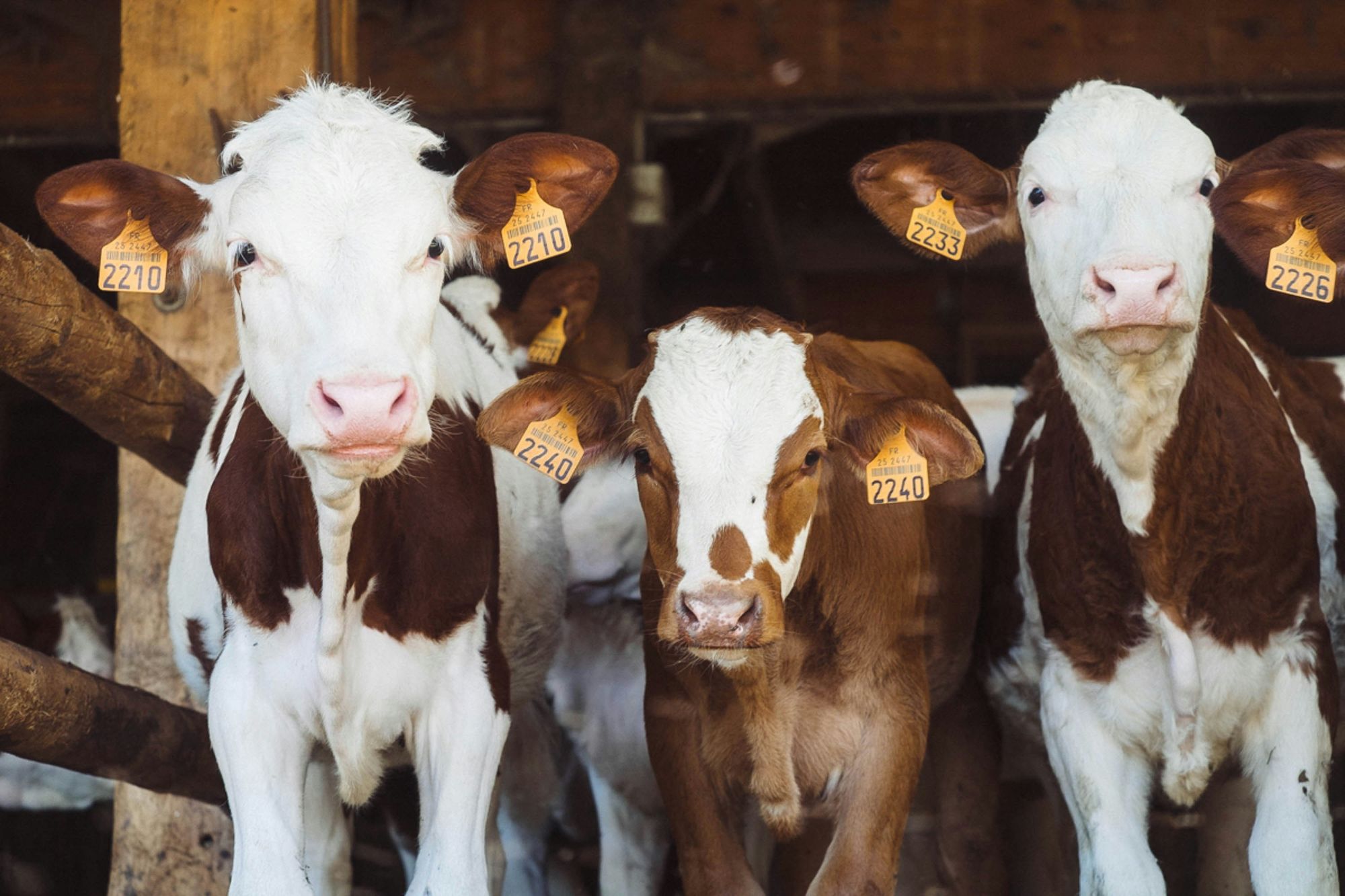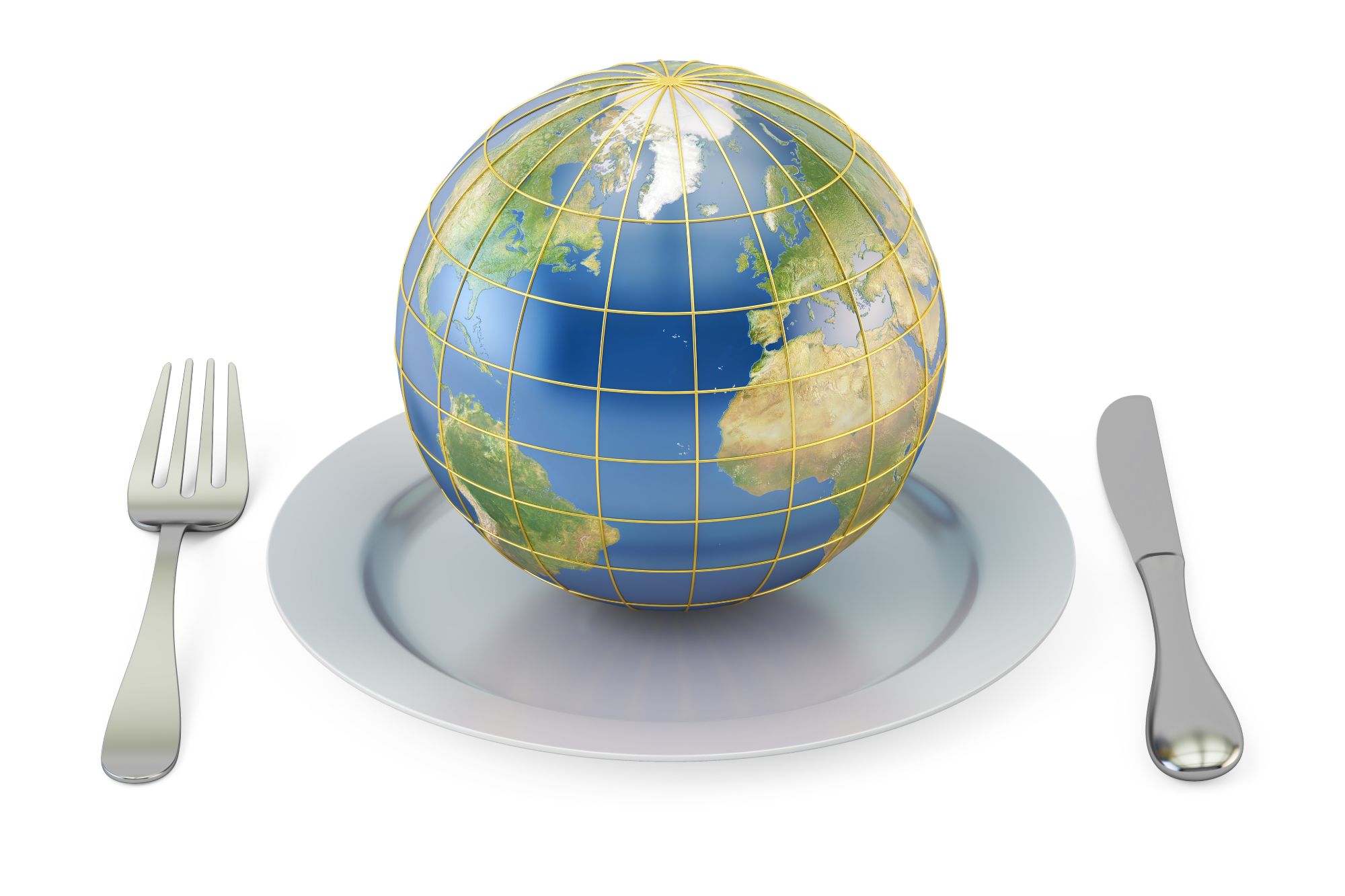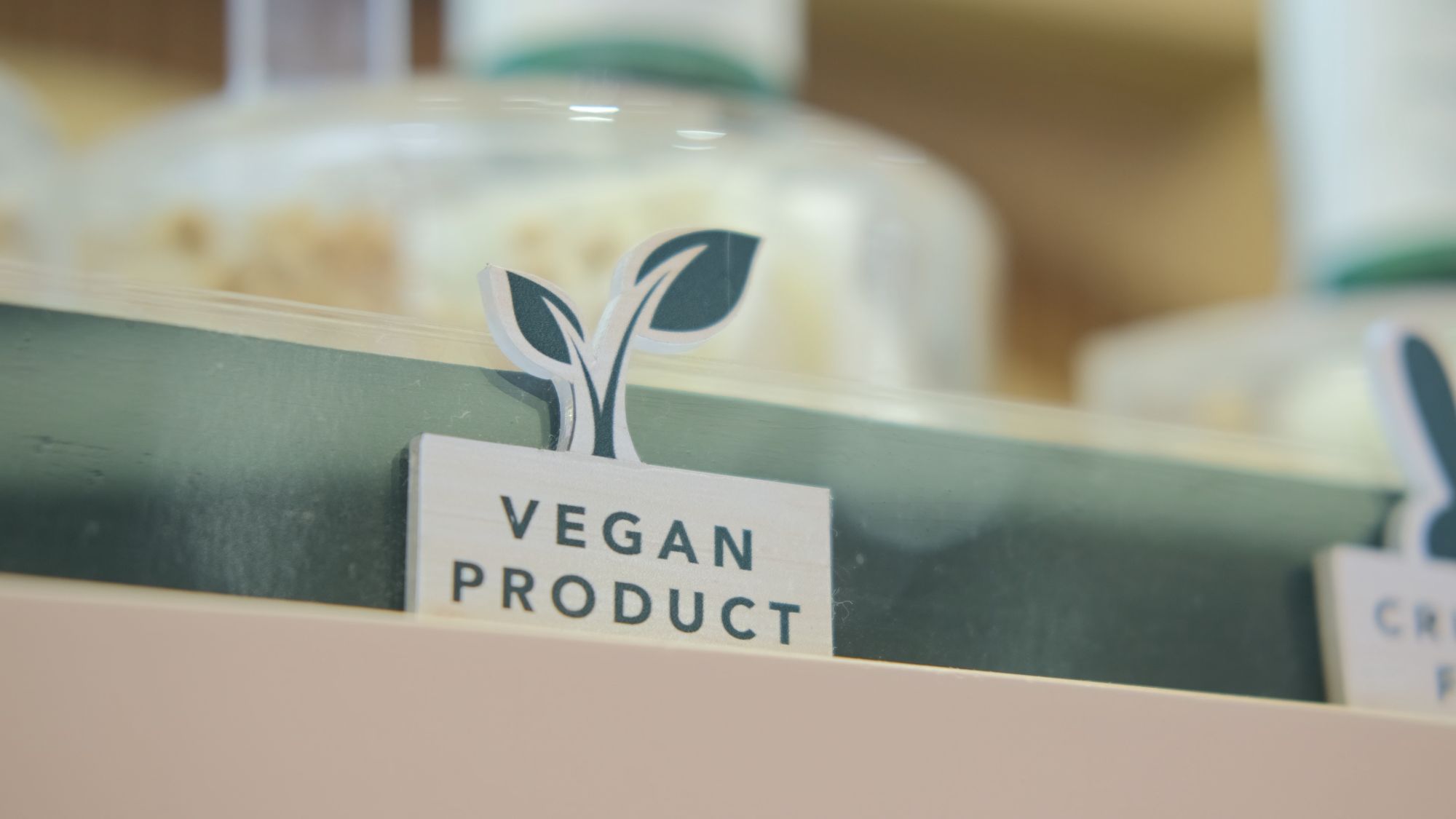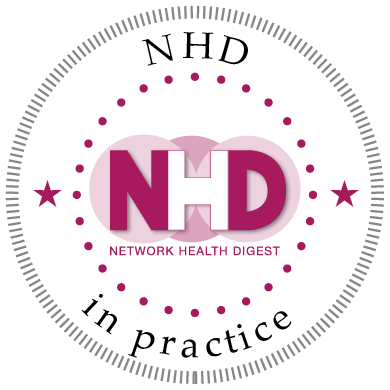
Emma has been a Registered Dietitian for over 17 years and has experience in adult and paediatric dietetics. She has been the Editor of NHD for seven years, steering the editorial content and supporting the production process. Emma currently works in industry.
Emma Coates, RD
MILK WITHOUT THE COW: IS ANIMAL-FREE DAIRY A FOOD OF THE FUTURE?

With a New Year comes resolutions, plans and hopes for great things. 2024 may well see positive developments and groundbreaking innovations in the nutrition industry driven by climate change and sustainability. Some novel technologies are already here, including advances in animal-free dairy products (AFDs). Whilst AFDs are not yet on sale in the UK, it won’t be long before we start to see animal-free dairy milk on the shelves.
WHAT ARE NOVEL FOODS?
Often considered to be innovative or unusual, novel foods have been regulated in the EU and UK since 1997, when the first novel food regulation came into force.(1) Despite their ‘unconventional’ foods label, novel foods, as summarised by the European Commission, can be ‘newly developed innovative food, food produced using new technologies and production processes, as well as food which is or has been traditionally eaten outside of the EU’.(1)
Similarly, the Food Standards Agency(2) states that ‘novel foods are any food that was not used for human consumption to a significant degree within the United Kingdom (UK) or the European Union (EU) before 15th May 1997. This means that the foods don’t have a ‘history of consumption’.
Examples of novel foods include:
- new foods, for example, phytosterols and phytostanols used in cholesterol-reducing spreads;
- traditional foods eaten elsewhere in the world, for example, chia seeds and baobab;
- foods produced from new processes, for example, bread treated with ultraviolet light to increase the level of vitamin D present.
All novel foods must be authorised before they can be placed on the market in Great Britain (GB) or within the EU (including Northern Ireland). The authorisation process within the UK and EU is a thorough and robust system to ensure the safety of all novel foods. In the UK, authorised novel foods are listed on the register of novel foods – Authorised Regulated Food and Feed Products for Great Britain and Union list of novel foods - European Commission (europa.eu). In the UK, all novel foods should be placed on the market in accordance with retained EU regulation 2015/2283.
PULL THE UDDER ONE!

Cell-cultured proteins and animal-free dairy (AFD) are novel foods that have emerged due to technological advances and innovation; in addition to the concerns regarding the ethical, environmental and health consequences of the livestock industry.(3) The growth of the animal-free alternatives sector is underway, with cell-cultured meat and AFD products becoming available in the USA and Singapore.(4-9)
Whilst these products are yet to hit EU and GB markets, there is growing interest in them and it is acknowledged that GB is considering changes to the novel foods regulatory framework to facilitate the authorisation of these foods.(10)
In the EU, there has been investment by the European Commission into a four-year project, named ‘HYDROCOW’, which aims to develop dairy protein whey (minus the cow) using CO2, hydrogen and electricity.(11) ‘HYDROCOW’ aims to engineer microbes that convert CO2 and hydrogen produced from water using electricity, into beta-lactoglobulin, a major constituent of milk.(11)
Photo by Annie Spratt on Unsplash
Further innovation in AFD is underway, with precision fermentation being implemented as a key technology for this.(12) Encoding milk protein DNA sequences into microorganisms like yeast or fungi enables the production of molecularly identical dairy proteins like casein or whey.(12) The use of precision fermentation extends from well-established processes used to produce synthetic insulin for the management of diabetes and genetically engineered rennet, which is used in current commercial cheese production.(13)
UDDER NONSENSE OR GOOD STUFF?
Whilst groundbreaking innovation in foods like these may seem like a good idea, there are numerous factors to consider: - ethics, safety, animal welfare, environmental impact, consumer acceptance, taste and nutrition.(13) Data published in 2022 from consumer focus groups conducted across the USA, Germany, Singapore and the UK found that AFD is a viable option, although consumers expressed a ‘cautious openness’ towards accepting it.(13) Its success would depend on whether AFD is preferable to conventional dairy or plant-based alternatives, particularly where taste and price are concerned.(13)
Concerns about the overall safety and regulation of the products, as well as the impact on health and climate were expressed in the data. Unease regarding ‘messing with nature’ also featured as a negative aspect of adopting AFD.(13) Online survey data published in 2021 highlighted that acceptance of AFD amongst consumers in Brazil, Germany, India, the UK and the USA, was likely to be good, particularly for animal-free dairy cheese products.(14) Whilst this data shines a promising positive light on acceptance, more research is needed.

IS THE GRASS GREENER ON THE AFD SIDE?
The shift towards AFD aims to offer sustainable and healthy food. However, any sustainability claims should be accurate, transparent and not misleading.(14) The true sustainability and environmental impact of this new technology and sector should be considered and not assumed to be ideal. Conventional dairy production has a significant impact on the environment, with a carbon footprint that is comparable to that of the aviation and shipping industries combined.(15) It has been estimated that AFD products have significantly less environmental impact;(15) however, more data is required, particularly as production scales up.
Currently, there is no legal definition of ‘sustainable’ within EU or GB legislation. However, a new EU Green Claims Directive was proposed in March 2023(16) to address greenwashing concerns and ensure the accuracy of environmental claims. For example, the use of common slogans such as ‘net zero’, ‘carbon neutral’ and ‘eco-friendly’ would be prohibited unless they were sufficiently substantiated and verified. Once the directive comes into force, EU member states will have 18 months to transpose it into national legislation. The directive will ensure that any sustainability claims are evidence-based and substantiated using life cycle assessments, which are externally verified. The emerging sector of animal-free alternatives will be subject to the same obligations as the majority* of other businesses where sustainability claims are being made. That is, they must evaluate their sustainability data and environmental impact to comply with the EU regulation when it comes into force.
GB hasn’t approached the regulation of green claims in the same way. The Green Claims Code was published in 2021, which isn’t a regulation but offers guidance to businesses making sustainability claims within the UK.(14) The new EU directive echoes many points in the UK Green Claims Code. Rather than adopting an explicit green claims regulation, in the UK, consumer protection law covers claims and regulators such as the Competition and Markets Authority (CMA), Trading Standards and the Advertising Standards Authority (ASA), can take action if a claim is misleading.(17)
*Only companies with less than 10 employees or with an annual turnover of €2 million would be exempt.
BENEFITS AND BARRIERS
AFD has a lot of potential and more AFD products and ingredients will likely filter into the food chain in the coming years. Mainstream manufacturers, such as Nestle, Mars and Myprotein, are exploring the use of AFD.(18) It must be noted, however, that whilst AFD products may be acceptable to some consumers, they could be contraindicated for others.
Some points to note:
- AFD production is not considered to be harmful to animals, but the proteins produced are identical to those found in cow’s milk, so not suitable for anyone with cow’s milk protein allergy.(19-21) However, currently available AFD products are typically lactose-free.(8,19,21)
- Nutritionally, AFD products can vary,(8,21) just as conventional dairy and dairy alternatives do. Looking at currently available AFD milk products, they can offer comparable calorie and protein content to whole or semi-skimmed milk**, with higher protein versions also available.(8)
- Unflavoured and flavoured options have been launched.(9,21)
- AFD milks are typically fortified with nutrients such as calcium, vitamin D and vitamin B12.(8,21)
**based on Milk - The nutritional composition of dairy products
THE VEGAN QUESTION

Marketed as animal-free and cruelty-free, the question on many people’s lips is are AFD products vegan-friendly? And the answer is… it’s complicated.
Manufacturers of AFD products claim that they are vegan-friendly, as, technically, no animals are involved in producing the products.(8,21) Whether the majority of vegan consumers would accept AFD products remains to be seen, but the option to consume AFD may be acceptable to those motivated by improved sustainability or animal welfare aspects associated with the innovation.(22)
However, whether AFD products would meet the standards for vegan certification by the UK Vegan Society (VS) (or its equivalents in other nations) is also questionable. Products that contain animal-derived genes would be excluded by the VS,(23) which could be a tricky factor for any AFD manufacturer to negotiate. Clarification regarding the production process for AFD is required. AFD is created from a digitised database of milk proteins (a line of code for a particular amino-acid sequence). No animals are physically involved in the process, not even for a swab or biopsy,(22,24) but the code does ultimately come from sequencing cow genomes.
WHERE TO FROM HERE?
Exact definitions and standards for this new sector are yet to be firmed up and interpretations of current terms, such as ‘animal-free’, ‘animal-derived’ and ‘vegan’, are blurred in relation to this new technology.(22) The conversation around this sector is just beginning and there’s much work to be done by stakeholders, including consumers, policymakers, manufacturers, regulatory bodies and relevant groups, to ensure it is clearly defined and transparent for appropriate regulation and for all concerned to make an informed decision whether to consume the products or not.
References
-
- Novel Food - European Commission (europa.eu)
- Novel foods authorisation guidance | Food Standards Agency
- Frontiers | Don't Have a Cow, Man: Consumer Acceptance of Animal-Free Dairy Products in Five Countries (frontiersin.org)
- Lab-Grown Meat Approved for Sale: What You Need to Know | Scientific American
- GOOD Meat | About Us
- Singapore approves lab-grown 'chicken' meat - BBC News
- Nestle Trials ‘Cowabunga’ Animal-Free Beverages Made with Perfect Day Whey (vegconomist.com)
- Strive Non-Dairy Milk and Animal-Free Milk Alternatives (striveforbetter.com)
- Dairy milk made without cows available at S'pore supermarkets for S$4.95 - Mothership.SG - News from Singapore, Asia and around the world
- UK mulls rule changes to allow faster cultivated meat and animal-free dairy approvals (foodnavigator.com)
- Milk made from carbon dioxide and electricity backed by EU (foodnavigator.com)
- Animal-Free Milk: What Precision Fermentation Dairy LCAs Tell Us (greenqueen.com.hk)
- Frontiers | Framing the futures of animal-free dairy: Using focus groups to explore early-adopter perceptions of the precision fermentation process (frontiersin.org)
- Green claims code: making environmental claims - GOV.UK (www.gov.uk)
- Frontiers | Don't Have a Cow, Man: Consumer Acceptance of Animal-Free Dairy Products in Five Countries (frontiersin.org)
- Green claims - European Commission (europa.eu)
- The Green Claims Code checklist - GOV.UK (www.gov.uk)
- Key Partners Using ProFerm™ Premium Whey Protein - Perfect Day
- Health Benefits of Our Lactose-Free Dairy - Perfect Day
- Animal-Free Dairy Milk, if Milk Alternatives Aren’t Your Jam (greenmatters.com)
- Bored Cow | "The first milk alternative to do it all." (tryboredcow.com)
- Animal-Free Dairy Is Here. But Is It Vegan? (greenqueen.com.hk)
- The Vegan Trademark | The Vegan Trademark Standards (vegansociety.com)
- What is 'animal-free dairy'? Change Foods explains - Food Frontier

